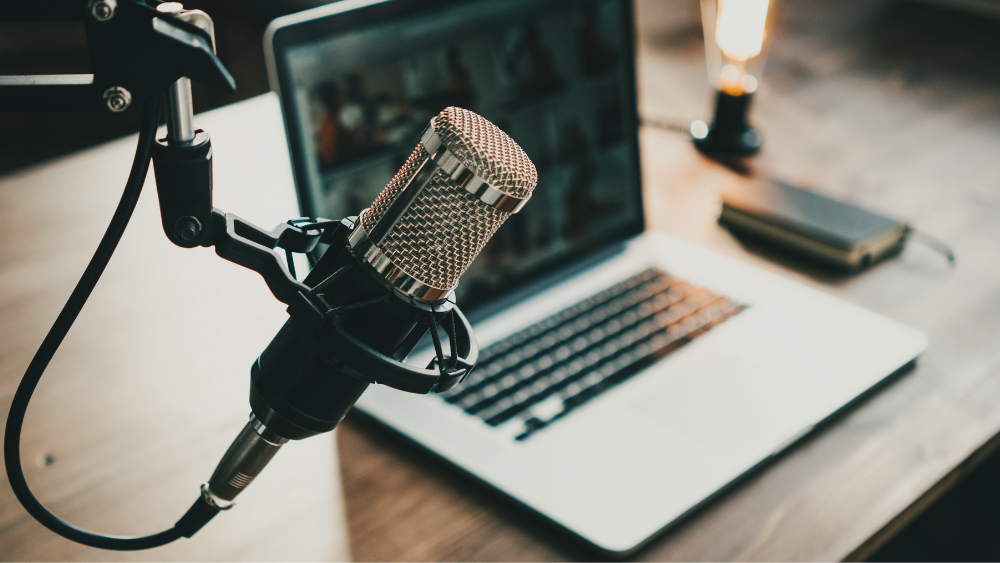Rise by Six: Your Daily Dose of Inspiration
Explore insights and stories that elevate your day.
Are Podcasts the New Radio for a New Generation?
Discover why podcasts are taking over radio for a new generation! Tune in and find out what you’re missing in the audio revolution.
The Evolution of Audio: How Podcasts Are Shaping the Future of Radio
The evolution of audio has given rise to a formidable medium that is transforming the landscape of radio: podcasts. In recent years, podcasts have surged in popularity, becoming a staple of modern media consumption. Unlike traditional radio, which relies on scheduled programming and FM frequencies, podcasts offer listeners on-demand content that caters to individual preferences and lifestyles. This shift not only democratizes audio content creation but also amplifies diverse voices, allowing niche topics to thrive. As a result, more people are tuning into podcasts, often citing their convenience and the personalized nature of the content as major draws.
Furthermore, the integration of technology into our daily lives has fueled the podcasting revolution. With the rise of smartphones and smart speakers, accessing podcast content has never been easier. As more people embrace this format, traditional radio stations are beginning to adapt by incorporating podcast-style segments into their programming and creating their own podcasts to reach a broader audience. This cross-pollination signifies a redefined relationship between audio media and its consumers, illustrating that podcasts are not just a passing trend but a pivotal force in the future of radio. To summarize, the journey of audio is ongoing, and as we embrace podcasts, we stand witness to the evolution of an entire industry.

5 Reasons Why Podcasts Are the Go-To Medium for Today’s Young Audiences
As the digital landscape continues to evolve, podcasts have emerged as a powerful medium that resonates with today’s young audiences. One of the primary reasons for this trend is accessibility. With smartphones becoming ubiquitous, young listeners can easily tune into their favorite shows anytime and anywhere, be it during a commute, workout, or while relaxing at home. Furthermore, the diverse range of topics and styles—from true crime to self-development—ensures that there is something for everyone, making it a perfect fit for a generation that craves tailored content.
Another compelling advantage of podcasts is their engagement factor. Unlike articles or videos that may require undivided attention, podcasts allow for multitasking; listeners can absorb information while they cook, clean, or drive. This flexibility makes podcasts a convenient choice for busy young adults who want to stay informed or entertained without sacrificing other activities. Alongside this, the personal and conversational nature of podcasting fosters a sense of community and connection, drawing in young audiences who seek authenticity and relatable voices in their media consumption.
Are Podcasts Replacing Traditional Radio? A Deep Dive into the Audio Landscape
The rise of podcasts has sparked a significant debate regarding their potential to replace traditional radio. With a growing audience that prefers on-demand content, podcasts provide flexibility and accessibility that radio often lacks. According to various surveys, a considerable percentage of listeners now favor podcasts for their diverse range of topics, allowing them to tailor their listening experience to personal interests, unlike conventional radio, which offers a one-size-fits-all broadcasting model. As technology advances and more platforms emerge, the question remains: is traditional radio becoming obsolete in this new audio landscape?
Moreover, the evolution of podcasts has introduced innovative storytelling techniques that engage audiences in ways traditional radio often doesn't. Listeners appreciate the opportunity to listen to expert interviews, in-depth discussions, and unique narratives, all at their convenience. Podcasts also foster a sense of community, enabling creators to connect with their audience through social media and live events. As advertisers shift their focus towards this burgeoning medium, the traditional radio landscape may continue to face challenges, suggesting that podcasts might not only coexist with traditional radio but could indeed be on the path to replacement.